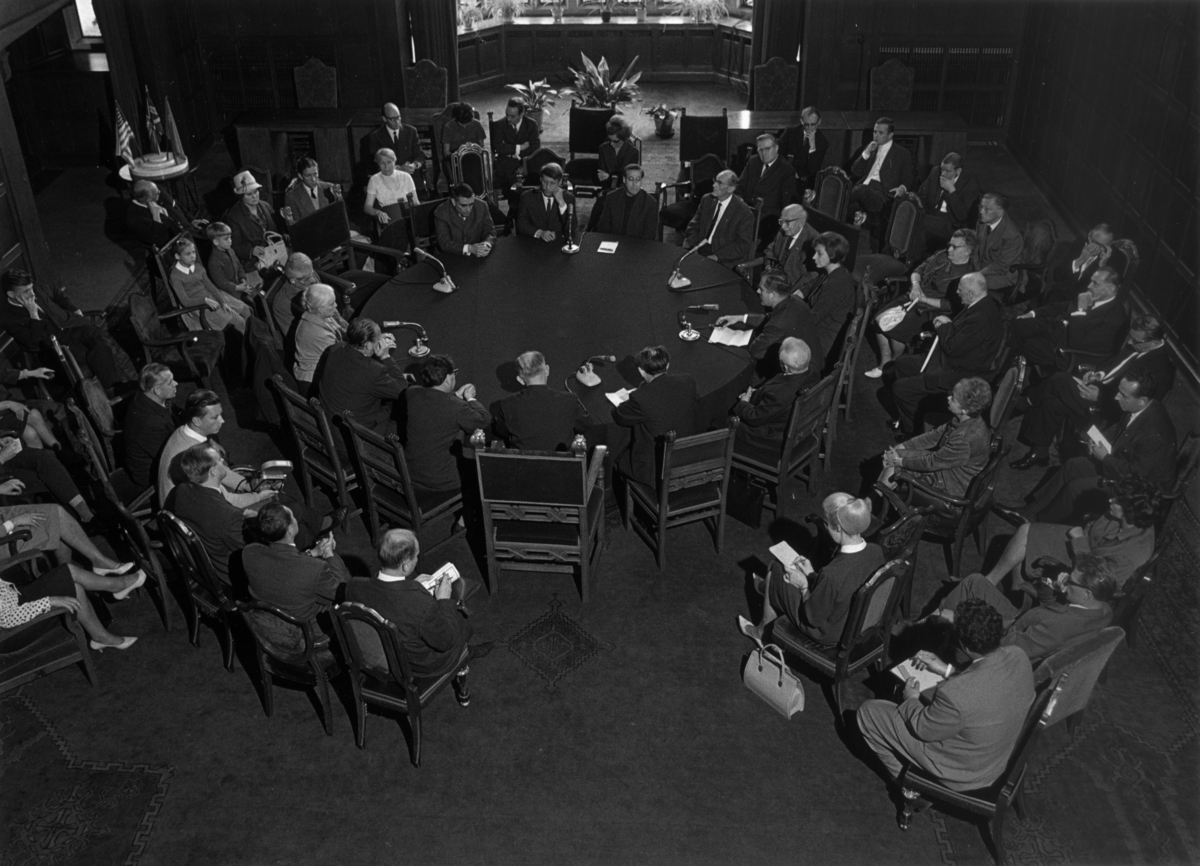Abstract
The writers’ association PEN (Poets, Playwrights, Editors, Essayists, and Novelists) was founded in London in 1921. Over the course of the twentieth century, it developed into an organization of international scope and significance, with branches in numerous countries and members all over the globe. The association maintains its importance to this day. Among other goals, PEN aims to advance literature, defend free expression, support writers who fall victim to government persecution, and foster an international literary community. To that end, PEN engages in a range of activities: for example, it publishes newsletters, sponsors translations of works in obscure languages, and organizes conferences on current political, cultural, and literary topics.
This photograph shows the general assembly of the “German PEN Center East and West” in Potsdam in September 1964. East and West German writers had gathered together at Schloss Cecilienhof, the site of the famous Potsdam Conference of 1945, to take part in an open discussion on the topic, “Two World Wars and German Literature.” Participants included, among others, Stephan Hermlin (top center, resting his head on his hand), and clockwise: Ludwig Renn, Arnold Zweig, NN, Günter Cwojdrak, Willi Bredel, Hermann Budzislawski, Alfred Kurella, Max Zimmering, Franz Fühmann, Anna Seghers, Kurt Stern, and Ernst Schumacher. At the back, to the right of the window: Hermann Kant and Peter Hacks. Photo by Horst E. Schulze.
